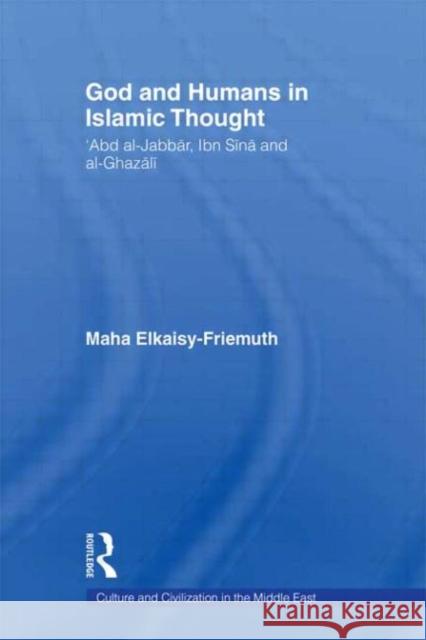God and Humans in Islamic Thought : Abd Al-Jabbar, Ibn Sina and Al-Ghazali » książka
God and Humans in Islamic Thought : Abd Al-Jabbar, Ibn Sina and Al-Ghazali
ISBN-13: 9780415400282 / Angielski / Twarda / 2006 / 214 str.
God and Humans in Islamic Thought : Abd Al-Jabbar, Ibn Sina and Al-Ghazali
ISBN-13: 9780415400282 / Angielski / Twarda / 2006 / 214 str.
(netto: 741,76 VAT: 5%)
Najniższa cena z 30 dni: 705,23
ok. 16-18 dni roboczych.
Darmowa dostawa!
The explanation of the relationship between God and humans, as portrayed in Islam, is often influenced by the images of God and of human beings which theologians, philosophers and mystics have in mind. The early period of Islam disclose a diversity of interpretations of this relationship. Thinkers from the tenth and eleventh century had the privilege of disclosing different facets of the relationship between humans and the divine. "God and Humans in Islamic Thought" discusses the view of three different scholars of the time: Abd al-Jabbar, Ibn Sina and Al-Ghazali. The relationships discussed in this work are: divine assistance, lu3f, according to 'Abd al-Jabbar; human love and attraction to the divine, 'ishq, according to Ibn Sina, and finally the mystical annihilation of the self in the divine unity, fana', of al-Ghazali. They introduce three approaches of looking at this relationship. In order to perceive these concepts, their perception of God and of the human nature will also be examined here. The starting-point of this research was the desire to set forth a variety of possible relationships which are all in accordance with Islamic belief, but nevertheless demonstrate diversity in understanding the relationship between the human and the divine which in turn suggests the concept of plurality within one religion. Examining these three concepts, which build firm connections between God and humans, reveals the importance of rational inquiry in medieval Islamic thought, not only because it was a source of logical arguments for Islam against its opponents but mainly because it built different bridges leading to God. God and Humans in Islamic Thought attempts to shed light on animportant side of medieval rational thought in demonstrating its significance in forming the basis of an understanding of the nature of God, the nature of human beings and the construction of different bridges between them.











